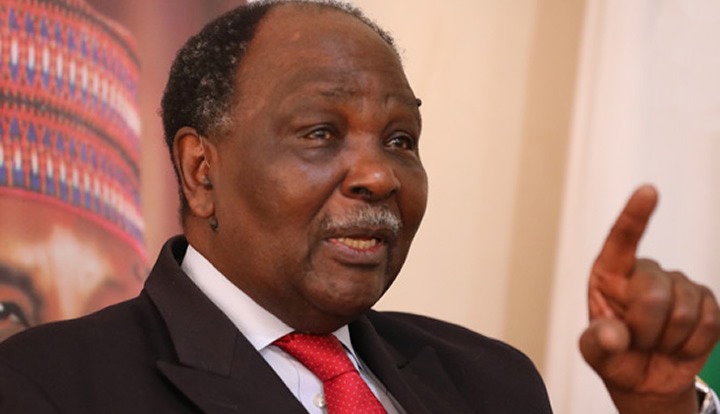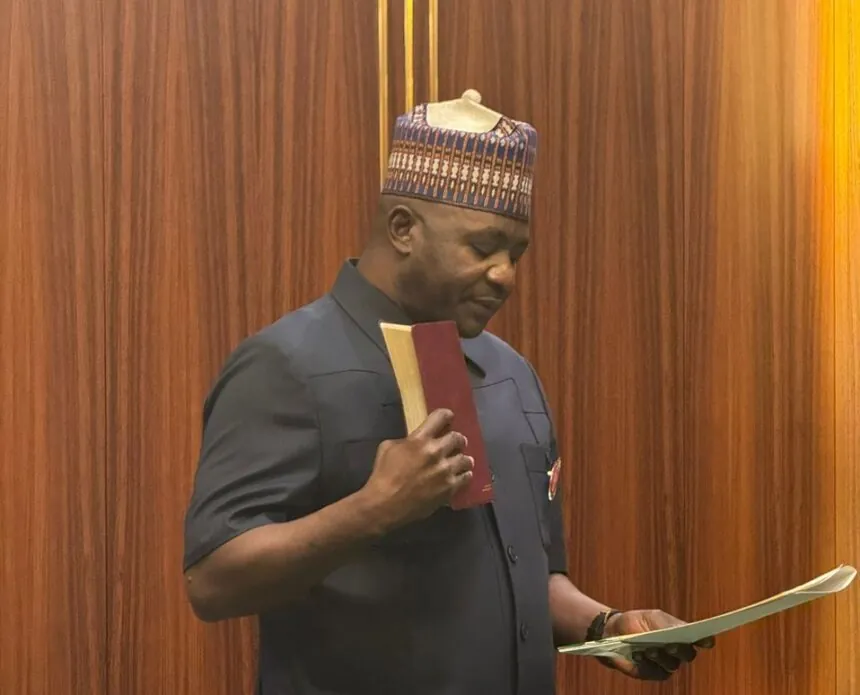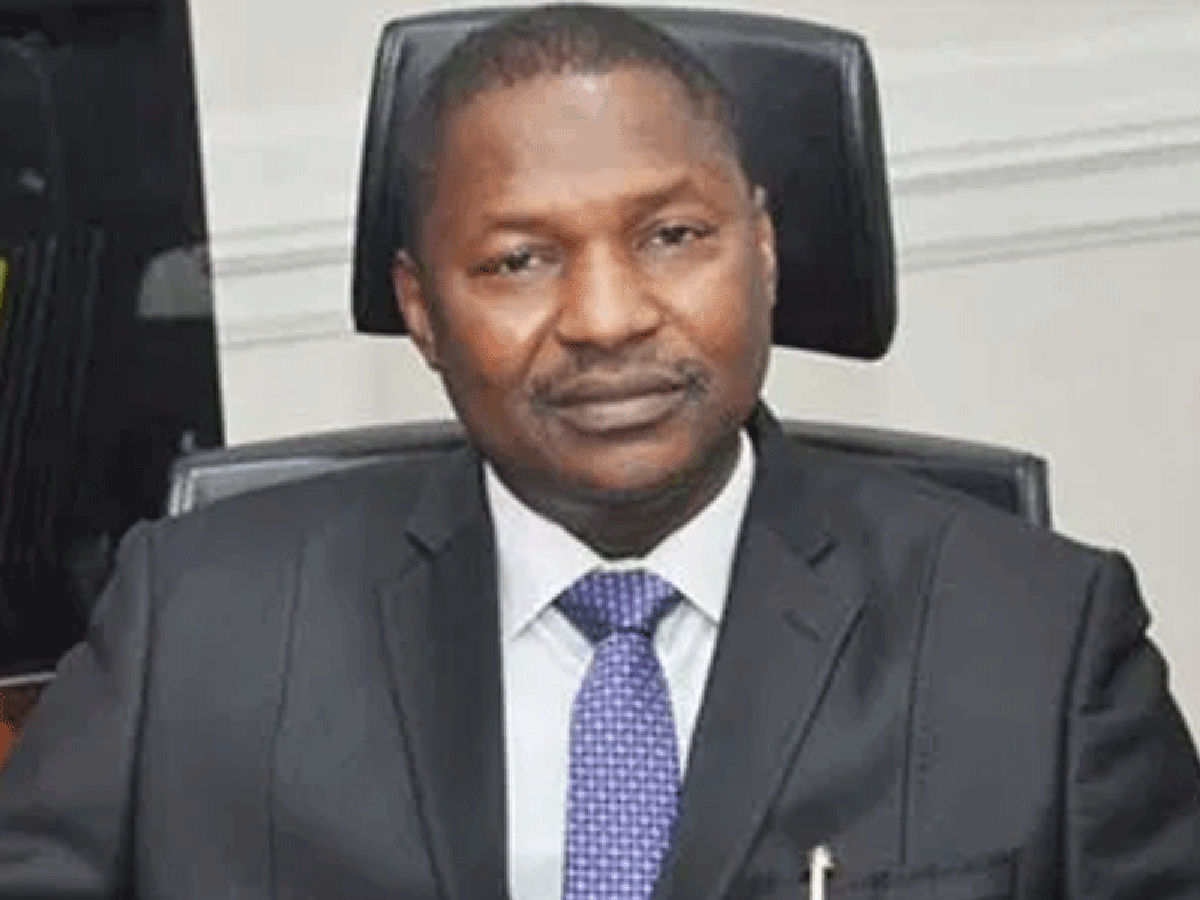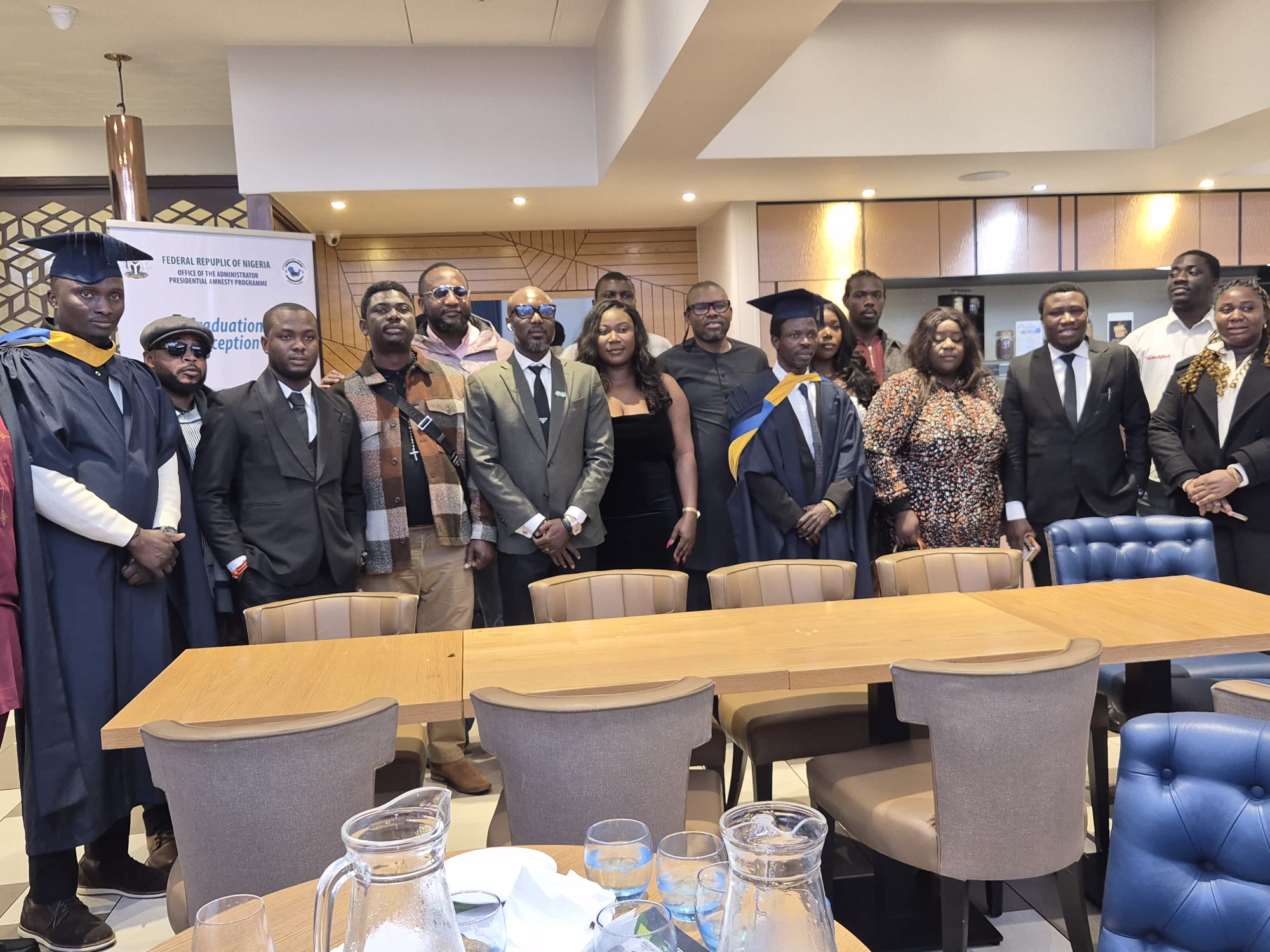News
Why Aburi Accord Collapsed – Gowon

A former Nigerian Head of State, General Yakubu Gowon, has said that a key reason for the collapse of the Aburi Accord, the last major attempt to prevent Nigeria’s civil war, was a fundamental disagreement with Chukwuemeka Odumegwu Ojukwu over who should control military forces in the country’s regions.
Speaking in an interview on Arise TV on Wednesday, Gowon explained that although both parties engaged in sincere dialogue during the January 1967 summit in Aburi, Ghana, the eastern region leader, Ojukwu, later pushed for a form of regional autonomy that the federal side could not accept.
Gowon said, “Although we said that the military would be zoned, you know, but the control… he wanted, you know, those zones to be commanded by the governor. Say you have a military zone in the north, it would be commanded by the governor of the military in the east, it would be commanded by, you know, by him.
“And, of course, we did not agree with that one”, Gowon said.
He further explained that the Federal delegation never viewed the Aburi meeting as a forum for constitutional restructuring or military devolution.
READ ALSO: Naira Rains As Asiaye Takes Emily As Wife [PHOTOS& VIDEO]
“We just went there as far as we are concerned to be able to meet as officers now, and then to agree to be able to get back home and resolve a problem at home. That was my understanding. But that is not his understanding”, he added.
Gowon also revealed that upon returning to Nigeria after the summit, he was ill and unable to immediately respond to the terms Ojukwu had publicly announced. This delay, he said, created space for misunderstanding and unilateral declarations.
“Unfortunately… I was having a serious attack of a kind of fever or whatever it is, and I could not make a decision”, the former Head of State said.
He accused Ojukwu of making unauthorised statements about the Accord without waiting for joint clarification.
READ ALSO: How Abacha Would Have Executed Obasanjo – Gowon
“Ojukwu was one who, when he came, he went and made… a statement about the Aburi Accord”, Gowon said.
To address the confusion, Gowon said the federal government convened a follow-up meeting in Benin, inviting all regional governors to agree on the path forward — but Ojukwu declined to attend.
“We had to organise that, you know, a meeting of all the governors. And he was invited to attend so that we can deal with the Accord. And we met at Nifo in Benin. And he did not turn up”, he said.
Gowon insisted that had Ojukwu attended the Benin meeting, the parties might have been able to avoid escalation.
READ ALSO:Biafra Civil War: You’re A Genocidist – IPOB Fires Back At Gowon
Gowon said the government was willing to work in the “spirit of Aburi,” but would never concede national military control to regional governors, nor accept the possibility of secession.
“The only thing that I added was that no region, you know, will, you know, can secede from the country.”
The collapse of the Aburi Accord is widely regarded as a decisive moment that led to the outbreak of the Nigerian Civil War in July 1967, a conflict that lasted until 1970 and claimed over a million lives.
Gowon’s remarks shed new light on the irreconcilable differences between both sides and reveal that the push for regional military control, rather than just political autonomy, was a red line for the federal government.
News
FULL TEXT: Gen Musa’s Inaugural Speech As Defence Minister

Newly appointed Defence Minister, General Christopher Gwabin Musa (rtd), on Friday, delivered his inaugural speech as he assumed office, pledging to end the shedding of innocent blood and strengthen Nigeria’s security architecture.
Here is the full speech:
FULL SPEECH: ADDRESS BY GENERAL CHRISTOPHER GWABIN MUSA (RTD), ON HIS ASSUMPTION OF OFFICE AS MINISTER OF DEFENCE.
December 5, 2025
It is with profound humility and a deep sense of responsibility that I address you today in my new capacity as the Minister of Defence of the Federal Republic of Nigeria. Six weeks ago, I was in Kaki. Now, I am coming as the Minister. It can only be God. I thank President Bola Ahmed Tinubu, GCFR, for the trust and confidence you have shown in me.
I take that very seriously. For me, it is indeed a privilege and an honour, after serving 39 years in service, to come in and now be the Minister of Defence of the Federal Republic of Nigeria. The love Nigerians have shown us reflects that people believe we can turn the tide.
But it is not rhetoric. It is by action. We must, firstly as Nigerians, take ownership of the responsibilities and challenges we face in our country.
It is only us who can solve the problem. It is when we agree within ourselves that we can deal with this, that we will succeed. God is with us, and He has always given us the responsibility to succeed.
This responsibility is one I accept with solemn reverence and unwavering commitment to the safety and security of our great nation, Nigeria. Let me also acknowledge the dedicated leadership of my predecessor and the relentless efforts of every one of you in this room.
READ ALSO:BREAKING: Tinubu Nominates New Defence Minister
When I was the Chief of Defence Staff, you gave me all the support, and I truly appreciate it. I want to assure you that coming back as Minister, we want to do more for your welfare, well-being, and the administration of the Ministry. I strongly believe in reward and accountability. You do well, you are rewarded. We take corrective measures to ensure we succeed. I don’t believe in “na so we dey do am.”
We must assess everything that we are doing and see whether we can improve it. I believe in fostering a positive workforce. We are going to listen to your challenges, and whatever we can do to address them, we will. But I count on you also to put in your best. You know your task ahead. You don’t have to wait until somebody calls you or asks you a question. Do what you are supposed to do, and that will make it easier for us as a nation.
The task of securing the nation is continuous, and I am aware that you have been holding the line with dedication. I commend you all. For decades, my life has been defined by uniform, by the ethos of service, and by sacred covenants to defend the territorial integrity and citizens of Nigeria. I therefore come to this role not as a stranger to our security challenges, but as a comrade who has been in the trenches both literally and figuratively. I’ve seen firsthand the bravery of our troops, the complexity of our threats, and the role of strategic coordination. Like I always say, no single individual can achieve this alone. No single service operator can do it. We must work as Nigerians, making Nigeria better.
Consequently, my core philosophy in ensuring the affairs of this ministry is simple: operational effectiveness through unified action and strategic foresight. Ladies and gentlemen, we cannot afford to operate in silos.
We cannot tolerate gaps between policy and execution, or between the ministry and the services. This ministry will be a powerhouse of strategic direction, enabling support, and relentless accountability. We must provide that support for our troops to continue to succeed. They are sacrificing their lives out there in the field—day and night, thunderstorm or windstorm—whatever the situation, to ensure that we, Nigerians, can go to bed and sleep well. We must continue to pray for them. We must continue to provide the necessary support.
READ ALSO:Things To Know About Nominated Defence Minister Christopher Musa
Working as a team with other MDAs, Mr. President has made it very clear he will give us all the support we require and demands that we achieve success, which we have promised him. Within the first few weeks, we must show that we are committed: the ministry working inside, the troops working outside.
To translate this philosophy into action, my initial focus will rest on three interconnected pillars: enhancing joint operational strategy synergy. We will immediately begin a rigorous review of all theatre commands and inter-service operations. My door will be open, as always, to the Chief of Defence Staff and Service Chiefs for frank discussions on equipment, training, welfare, and strategy. Mr. President wants us to present our challenges, with the promise that they will be addressed. So it is left for us to do the needful.
Our goal is to overwhelm the adversaries with seamless jointness, not just cognition.
Welfare and Morale as a Force Multiplier
We all understand the importance of morale to our personnel and staff. We must therefore prioritise the timely provision of all necessary kits, ensure prompt payment of operational allowances, and vigorously address accommodation and medical care for our personnel and their families. Those not injured are watching how we treat the injured. If they are not taken care of properly, they will not give their best, because they will be apprehensive. Especially those who have lost their loved ones—the families want to know what will happen.
READ ALSO:Senate Confirms Ex-CDS Musa As Defence Minister After Five-hour Screening
It is our responsibility to take care of them. The aspect of actions that impugn their integrity is not acceptable. We must make payments seamless. We must treat them with respect. Anybody who is laying down their life for their country deserves the highest respect, and that is what we offer. I will be very critical about that.
Intelligence-Driven and Technology-Enabled Defence
The Ministry of Defence is the strategic brain of our national defence architecture. We must therefore leverage technology for intelligence, surveillance, and recurring service. We have partners and allies ready to support us. We will reach out to them to work as a team. We will also collaborate with other security agencies. Every Nigerian is vital to the success of Nigeria. We will foster a culture where data and intelligence drive our decisions, not just experience alone. I charge the Ministry to be a catalyst for innovation and efficient resource management.
Distinguished ladies and gentlemen, I expect the highest standards of professionalism, integrity, and urgency from all of us. We do not have time to waste. We will continue to hit the ground running. We must respect the human rights of Nigerians. If we make mistakes, we must take necessary action to make amends. I will always encourage candid advice and robust debates. But once a decision is taken, we must move as one united team.
There will be zero tolerance for corruption, indiscipline, or indolence. Our loyalty is to Nigeria and the Nigerian people. The President is the Commander-in-Chief; the bulk stops on his table. We must provide the support required to make Nigeria peaceful.
READ ALSO:JUST IN: Defence Minister, Badaru Mohammed Resigns
Shedding of innocent blood is over. Our children should go back to school. Our farmers should go back to their farms. Most of the challenges we face are not military solutions—they are issues of good governance, justice, equity, and fairness, which we will encourage. Both non-kinetic and kinetic solutions must work hand in hand. We cannot afford to fail Nigerians. Charity begins at home; if we have the mindset that we will succeed, we will.
To the Service Chiefs, I offer my full support and expect your utmost cooperation to move the Armed Forces to greater heights. To the Department Secretary and the Civil Service cadre, you are the institutional memory and the framework for our sustainability. I value your expertise and count on your diligence to translate our military objectives into actionable administrative and budgetary policies.
The road ahead is demanding and will be tough. Let us not take it for granted. But because we are Nigerians, we shall overcome. The threats we face are adaptive and complex, but I have absolute faith in the indomitable spirit of our Armed Forces and the capable minds within the Ministry. With the support and prayers we are receiving from all Nigerians, we cannot fail.
In closing, let me once again reaffirm my commitment to lead with fairness, firmness, and loyalty to our Constitution. The President is doing everything possible to ensure our success. We must play our part. The task ahead is enormous, but surmountable. We can win. We will win. The good people of Nigeria are looking up to us for results, and we must deliver immediately. I am not here to preside; I am here to lead, to walk, and to deliver alongside you. I cannot do it alone. I thank you all as I look forward to our detailed work and the tasks ahead.
God bless you all, and God bless the Federal Republic of Nigeria.
Thank you.
— General Christopher Gwabin Musa (Rtd)
Minister of Defence, Federal Republic of Nigeria
News
Malami Breaks Silence On Alleged Terrorism Financing

A former Attorney-General of the Federation and Minister of Justice, Abubakar Malami, SAN, has broken his silence on allegations linking him to terrorism financing, dismissing the claims as baseless, misleading and politically motivated.
In a statement issued on Friday, Malami said he was compelled to respond after a publication suggested that he and several others had connections to persons described as terror suspects or alleged financiers.
Malami described the claims as “unfounded, unfair and contrary to both my record in public office and objective facts.”
The former minister stressed that he had never been accused, invited, interrogated or investigated by any security, law-enforcement or intelligence agency within or outside Nigeria for terrorism financing or any related offence.
READ ALSO:JUST IN: Ex-AGF Malami’s Convoy Attacked In Kebbi [PHOTOS]
He said: “I state clearly and unequivocally that I have never at any time been accused, invited, interrogated, investigated or charged by any security, law-enforcement, regulatory or intelligence agency—within or outside Nigeria—in respect of terrorism financing or any related offence.”
Malami noted that even the retired military officer cited as the principal source of the publication admitted that he did not accuse Malami or the other individuals of financing terrorism, but merely referenced vague “business” or “institutional” connections allegedly linked to some suspects.
He said the publication misrepresented this clarification and was politically exploited to create damaging insinuations about him.
Malami warned that normal professional or institutional engagements must not be misconstrued as evidence of supporting terrorism.
READ ALSO:2027: Peter Obi Meets Ex-AGF Malami Amid Coalition Talks
“To suggest that lawful professional or institutional engagements can be read as evidence of terrorism financing is both mischievous and unjust,” he said.
Highlighting his record, Malami listed several anti–money laundering and counter-terrorism reforms spearheaded during his tenure, including:
Establishment of the Nigerian Financial Intelligence Unit (NFIU) as an independent entity
Enactment of the Money Laundering (Prevention and Prohibition) Act, 2022
Enactment of the Terrorism (Prevention and Prohibition) Act, 2022
READ ALSO:CSO Demands Malami’s Probe Over Alleged N1bn Car Gifts
He noted that improved inter-agency coordination under these laws contributed to Nigeria’s removal from the Financial Action Task Force (FATF) grey list.
“During my tenure, I worked to strengthen—not weaken—Nigeria’s legal and institutional framework against money laundering and the financing of terrorism,” he said.
Malami urged the media to exercise caution when reporting on sensitive national security issues, warning that careless publications can damage reputations and undermine confidence in state institutions.
He reaffirmed his commitment to the rule of law and Nigeria’s international obligations, adding that he reserves the right to seek redress against any publication that misrepresents his role in the fight against terrorism financing.
News
Otuaro Pledges To Expand PAP Scholarship As Beneficiaries Bag Master’s Degrees From UK Varsities

Administrator of the Presidential Amnesty Programme (PAP), Dr. Dennis Otuaro, has expressed his unwavering commitment to expanding the PAP scholarship scheme.
The PAP boss made the pledge at a graduation reception for nine students who were awarded foreign post-graduate scholarships by PAP in universities in the United Kingdom.
A statement by his Special Assistant on Media, Mr Igoniko Oduma, said the successful scholars are the first graduates in the offshore post-graduate scholarship deployment to UK institutions by the PAP Administrator, Dr Dennis Otuaro, for the 2024-2025 academic session.
According to the statement, they graduated from the Anglia Ruskin University, University of Dundee and The University of Law with master’s degrees in cyber security, data science and engineering, law, construction and civil engineering management, project management, and ICT.
READ ALSO:PAP Seeks NCC Partnership On Beneficiaries’ Empowerment
Otuaro disclosed in the statement that 711 undergraduate and post-graduate scholarship beneficiaries are expected to graduate from universities within Nigeria this year.
According to Otuaro, the expansion of the scholarship scheme is aimed at creating more opportunities for indigent students of Niger Delta extraction to access higher education with a view to closing the human capital development gap in the region.
Otuaro said it was for this reason he deployed 3800 beneficiaries in-country in the 2024-2025 academic year, and increased the figure to 3900 in the 2025-2026 academic session with 200 for foreign scholarships.
He said under his administration, 7700 students have been so far deployed for the PAP scholarship scheme within Nigeria in less than two years.
READ ALSO:Edo Govt, PDP Biker Over PRESCO’s Statutory Right Of Occupancy
According to him, aince he took over, he has deployed 162 students from the region for post-graduate programmes in targeted disciplines in the UK universities.
According to him, this is in conformity with the Renewed Hope Agenda of President Bola Tinubu for the Niger Delta, who has given unprecedented support to the PAP because of his sincere love for the area.
The PAP boss said, “Our decision aligns with the Renewed Hope Agenda of His Excellency, President Bola Ahmed Tinubu GCFR for the Niger Delta. We will continue to create more higher educational opportunities for students from indigent backgrounds in our region.
“We are also deepening the implementation of the programme’s mandate in informal education and other areas for the sustainable peace and socio-economic advancement of the region.”
Otuaro, who congratulated the master’s graduates on their successful graduation, stressed that they completed their programmes in record time which shows the seriousness they had put into their studies.
He said they have justified the Federal Government’s investment in their education with their successful graduation, and urged other beneficiaries not to be distracted in their academic pursuits.
“We congratulate these scholars on their successful graduation. It shows that they took their studies seriously. That is what we demand of every scholarship beneficiary, whether at the undergraduate or post-graduate level”, Otuaro said.

 News5 days ago
News5 days agoBREAKING: Ex-CDS Musa meets Tinubu At Aso Villa

 News5 days ago
News5 days agoMOWAA: Why I Will Not Appear Before Edo Assembly Panel — Obaseki

 Metro5 days ago
Metro5 days agoOsun Monarch’s Burial Rites Turn Bloody

 Entertainment5 days ago
Entertainment5 days agoFacebook, Instagram Suspend Idris Abdulkareem’s Accounts After New Song, Open Letter To Donald Trump

 Sports4 days ago
Sports4 days agoDavido Reacts As Gov Adeleke Dumps PDP

 Entertainment4 days ago
Entertainment4 days ago2face, Natasha Fight Dirty On Instagram Live Amid Singer’s Alleged Arrest In UK

 News5 days ago
News5 days agoFULL LIST: Approved Physical Verification Centres For CDCFIB 2025 Screening

 News5 days ago
News5 days agoJUST IN: Defence Minister, Badaru Mohammed Resigns

 Metro5 days ago
Metro5 days agoPHOTOS: Borno Woman Recovers N23m Gold Buried During Boko Haram Escape

 News4 days ago
News4 days agoBREAKING: Tinubu Nominates New Defence Minister


























